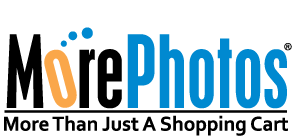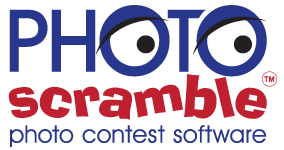Today's Guest: Alan Drewsen of The International Trademark Association
Today's Host: Damien Allen
 Listen to this Show
Listen to this Show Publish this Show on Your Website
Publish this Show on Your Website Show Sponsor Traverse Legal
Show Sponsor Traverse Legal Traverse Legal
Traverse Legal
 Alan Drewsen Transcript Page
Alan Drewsen Transcript Page
 Alan Drewsen Expert Page
Alan Drewsen Expert PageANNOUNCER: Welcome to VTalk Radio Tech Spotlight with your host, Damien Allen.
DAMIEN: Today via phone we have with us Mr. Alan Drewsen. Alan is the executive director of INTA. Good afternoon, welcome to the program, Alan.
ALAN: Good afternoon. Thanks for having me, Damien.
DAMIEN: Well, today we are talking about trademarks and my first question for you is: What exactly is the INTA?
ALAN: The INTA and that stands for the International Trademark Association is just that. It's the trade association with 5,000 companies and firms in 190 countries around the world that are members, and overall the organization is dedicated to support trademarks as important in the fair and effective commerce internationally or nationally.
DAMIEN: What makes a trademark so important?
ALAN: Well, trademarks began in are principally still a consumer protection device. They are indications of a source of goods or services so that the consumer knows what he or she liked in the past and wants to purchase again or perhaps even what they didn't like, and what they want to stay away from. So it's a signaling device to consumers so they can make informed choices in the marketplace.
DAMIEN: Now, is a trademark a brand? Is a trademark? Are they interchangeable? Is it the same thing?
ALAN: No, they're not interchangeable. A trademark is a little bit more of a legal concept. A brand is a somewhat broader definition, but they're often used interchangeably. So, if you take a company like Microsoft, Microsoft is a trademark, but also that's an important brand and a lot of advertising and marketing obviously goes into the development of a brand like that.
DAMIEN: In today's day and age, we have a lot of issues with cybersquatting and cybersquatting is the use of a name or trademark or the misspelling or the misuse of a said name or trademark in order to get people to move traffic into it. Why is the INTA taking such a special interest in cybersquatting right now?
ALAN: Well, we've been active in this area for a long time, and it's because cybersquatting and the internet in general are such an important subject for our brand owner members because it is their trademarks that are being misused and abused by the cybersquatters of the world.
DAMIEN: What is the INTA using as a definition for cybersquatting?
ALAN: Well, let me give you the legal definition which comes from the Anti-cybersquatting Consumer Protection Act which was enacted several years ago by congress and there they define cybersquatting as: the registering, trafficking in or using a domain name with bad faith intent to profit from the good will of a trademark belonging to someone else. And the key element there is the bad faith intent.
DAMIEN: So what kind of companies or what kind of people do cybersquatters target?
ALAN: They're going to target any sort of popular brand. Some thing that's going to be recognizable to the public. So anybody is fair game I think for cybersquatters. Usually you're going to see the famous trademarks, the famous brands being the most likely targets, but in fact it could be anyone.
DAMIEN: Are there any current famous names that have been hit with this type of attack?
ALAN: Well I think you'd have to say that there are very, very few that haven't been. Whether it's cybersquatting as it began, that is, somebody going out and trying to register a famous trademark and hold it for ransom, or whether it's typosquatting hoping that a consumer will make a mistake while typing in a brand name and be directed to the wrong website, or whether it's phishing for consumer personal information. Really, I'd say almost any major brand in the world has been a target for cybersquatters.
DAMIEN: As these people are infiltrating the internet and causing these forms of attacks and trying to either squat on a trademark name or typosquatting, who's hurt by these other than the companies?
ALAN: Well the consumers are certainly hurt by it. First of all, in general, there's a lessoning of confidence in the internet, but more importantly I think the consumer ends up where they didn't intend to go. And they could end up on a pornographic site, they could end up on a site that they confusedly think is the brand owner's real site. They could end up on a site where the cybersquatter is trying to extract social security number or credit card information or something like that. So, there's a great deal of harm to the consuming public. And it's not just that they can hit a back button and get out of it, they don't know where they've ended up or they're confused about where they've ended up.
DAMIEN: I know in the old days if you accidentally got into one of those sites sometimes you'd be stuck with something that was once referred as "the pornado" where you've got 8 zillion links that just continuously open with no way to stop them.
ALAN: That's right, and you couldn't get out of it. And of course if it's a child, a child might be fascinated by what they've come across or confused and not leave the site. So there's a great deal of potential harm out there for consumers.
DAMIEN: We are in the studio today with Alan Drewsen, executive director of the INTA. My name is Damien Allen and this is the VTalk Radio's Tech Spotlight. We're going to take a short pause for these commercial announcements; we'll be right back.
ANNOUNCER: This VTalk Radio Spotlight is brought to you by Traverse Legal, a high-tech law firm providing international representation in business technology, intellectual property and complex litigation matters. You can contact Traverse Legal through its website at www.traverselegal.com.
VTALK RADIO: VTalk Radio.
ANNOUNCER: We now return you to the VTalk Radio Tech Spotlight, only on vtalkradio.com.
DAMIEN: Good afternoon, w elcome back to the program you're listening to VTalk Radio's Tech Spotlight. I'm Damien Allen again on the phone with us we have Alan Drewsen, executive director of the INTA, the International Trademark Association. Welcome back to the program, Alan.
ALAN: Thank you.
DAMIEN: We've been talking about cybersquatters and typosquatters and what exactly is going on in the internet with trademark infringement and how it is hurting people. And, what changes do we need to consider to further protect trademark rights in the internet arena?
ALAN: Well one controversy is going on right now has to do with the Who Is database. When you register a domain name, you provide certain information about who you are in registering that domain name and what the brand owners have found over time is a lot of that information is fraudulent. The individuals registering these domain names don't want to be identified. They don't want to be found. And, this is harmful, of course, for the brand owners who are trying to track down who is infringing their trademarks who perhaps is providing counterfeit products. It's also bad for law enforcement who are trying to track down people who are committing crimes on the internet. So, our members, the brand owners, are working very hard to maintain the integrity of the Who Is database, and not everybody is in agreement with that out there. Some of the registrars and some of the bad actors really want to break down the integrity of that database. So that's one fight that's going on. Secondly, and this is an increasingly serious problem is the amount of counterfeit merchandise that's being offered on the internet. Brand owners in working with the some of the auction sites and some of the search engines are trying very hard to limit the amount of fraudulent counterfeit products that are being offered. It's a very difficult task; it's an ongoing challenge, but it's a significant issue. A lot of those counterfeit products, things like drugs, for example, are extremely harmful to the consumer. So, that's another big issue.
DAMIEN: What are the dangers if we don't do something to protect against cybersquatting now?
ALAN: The problem is just going to increase in scope and significance. And the harm both to the consumers and the brand owners, likewise, is going to increase. The cybersquatters and the people who are very familiar with the internet and how it works are becoming increasingly sophisticated. We know all about computer hackers and people like that, and this is a problem, cybersquatting and the abuse of the internet that gets worse every day. The criminals get smarter every day and so the threats that we talked about earlier to consumers, to children, to brand owners will only increase if we don't get some of these protections in place.
DAMIEN: Do you have any other advice for consumers?
ALAN: I think consumers are beginning to learn that their emails are a likely source of fraudulent practices. So, we all have so many junk emails in our inboxes every day. We've got to be aware that emails that have generic greetings from people we don't recognize that have documents attached to them just shouldn't be opened. They ought to be deleted. Likewise, we've got to be very careful when we're using the internet that we don't click on links that are fraudulent, that seem to be broken, that are unfamiliar. The more informed the user is about how to use the internet the better. One thing that we do advise is that do not type brand names or trademarks or phrases that you think will get you to a website directly into your internet browser. It's much better to use a search engine, and you're therefore going to end up where you wanted to end up. Likewise, I think consumers ought to use some sort of internet security software to help protect their computer from the viruses and other cybersquatting attempts that might be made on the integrity of their computer.
DAMIEN: We have been speaking with Alan Drewsen, executive director of the INTA, the International Trademark Association. Thank you very much for joining us this today and giving us this wonderful information, Alan.
ALAN: You're certainly welcome, and let me invite the listeners to our own website which is www.INTA.org where there's a really great collection of information about trademarks about their proper use and their misuse, and I think the public would find it very, very interesting.
DAMIEN: There ya go. Thank you very much Alan.
ALAN: Alright. Thank you.
DAMIEN: You have been listening to the VTalk Radio Spotlight. I'm Damien Allen, have a great afternoon.
ANNOUNCER: You've been listening to the VTalk Radio Spotlight. Only on vtalkradio.com. Radio for the 21st century.
 go to top of the page
go to top of the page







